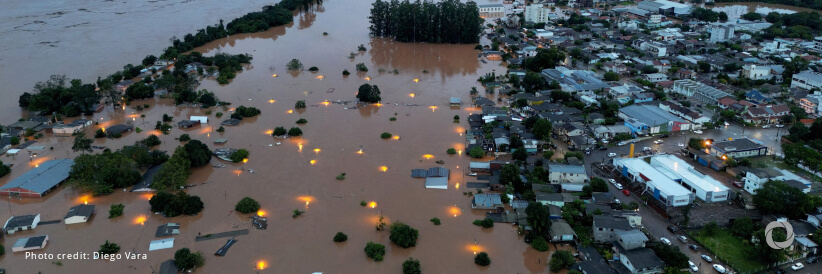Child-focused, Christian organization, World Vision, is on the ground responding to widespread flooding in Brazil and will support 70,000 families and 200,000 children in Rio Grande do Sul. Record rains have killed 95 people, 131 are missing and over 400 communities have been affected.
The NGO is mobilizing donations and calling on the private sector to invest US$ 8 million in relief response to support the provision of psychosocial support, food baskets, drinking water, mattresses, beds, hygiene/sanitation, and childcare kits, among other items.
“We seek to provide immediate aid to renovate damaged homes and support livelihoods through cash transfer. This will allow families to buy food, medicine, and essential household furniture in the coming months”, said Thiago Crucciti, National Director of World Vision in Brazil.
Out of 10.8 million inhabitants of Rio Grande do Sul, historical high rains affected 1,443,950 people (13% of the state’s population), who are in shelters or displaced, according to Civil Defence. To prevent the risk of abuse and violence against children, World Vision Brazil will implement two safe spaces for children and adolescents in the affected communities, ensuring psychosocial support and protection for children at risk.
The Guardianship Council, in the municipality of Canoas, has said that 104 children are separated from their families.
“Our top priority is to safeguard the mental and physical health of children, which is currently deeply compromised. World Vision will distribute 15,000 tenderness kits, designed to restore emotional wellbeing during these turbulent times. Each kit represents a step towards recovery and normalcy,” added World Vision Brazil’s Director.
“Children are one of the most vulnerable groups in the midst of crises and often have no idea of the magnitude of the events they are experiencing. They find themselves away from home, family, and friends and are likely to be psychologically impacted by this crisis. Without an appropriate intervention, these events could leave lasting scars. We must respond now to ensure that they get the support they desperately need” concludes Crucciti.

